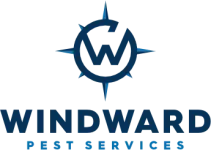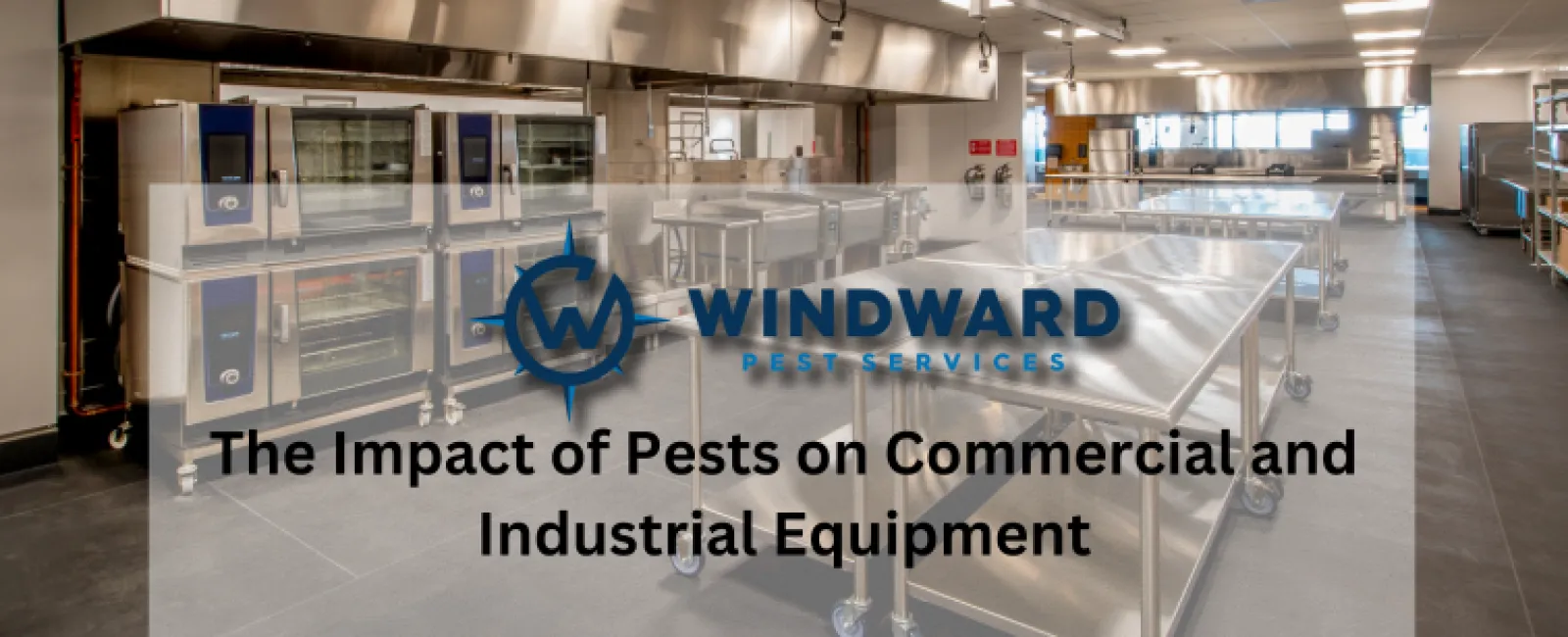Commercial and industrial environments often focus heavily on production, efficiency, and equipment maintenance, but one critical threat is frequently overlooked: pests. Pests can wreak havoc on equipment, causing everything from minor malfunctions to complete breakdowns of essential machinery. For businesses operating in sectors that rely heavily on equipment—such as manufacturing, warehousing, and logistics—pest infestations can result in costly repairs, downtime, and even health and safety risks.
In bustling commercial hubs like Atlanta, where industries thrive, pest management is crucial for protecting valuable equipment and maintaining smooth operations. Utilizing professional Atlanta pest control services, such as Atlanta interior and exterior pest treatments from Windward Pest Services, can help safeguard your facility from the destructive effects of pests. From rodents gnawing on wires to insects nesting in machinery, Georgia businesses are no strangers to the persistent threat that Georgia pests pose to their equipment.
In this article, we'll delve into the types of pests that commonly affect commercial and industrial equipment, the damage they can cause, and how regular pest inspections and treatments from Atlanta residential and commercial pest services can prevent major disruptions to your business operations.
Types of Pests That Affect Commercial and Industrial Equipment
Pests come in various forms, and each type presents its own unique set of challenges. Below are some of the most common pests that infiltrate commercial and industrial environments:
Rodents (Rats and Mice): Rodents are notorious for chewing through wires, cables, and insulation, leading to electrical shorts and equipment failures. In addition, rodent droppings can contaminate surfaces and create health hazards for employees. In environments with heavy machinery or electronic systems, the presence of rodents can lead to catastrophic failures and extended downtime.
Cockroaches: While cockroaches are often associated with kitchens and food preparation areas, they can also infest industrial spaces. Cockroaches are known to hide in dark, warm places, and machinery can offer ideal environments for them to thrive. As they crawl through equipment, they leave behind feces and bacteria, potentially leading to unsanitary conditions and machine contamination.
Termites: In industries where wooden components are used in equipment or packaging, termites can be a silent destroyer. These insects can compromise the structural integrity of machinery or storage systems, leading to expensive repairs. If left untreated, termites can cause long-term damage that severely disrupts production.
Ants: Certain species of ants are attracted to electrical components and can damage equipment by nesting inside machinery. These ants can also bite or sting, creating an unsafe work environment. For industries relying on conveyor belts, packaging machines, or automated systems, ants can be a significant problem.
Birds: Birds may not seem like a traditional "pest," but their droppings can create issues in industrial settings. Bird droppings are highly acidic and can corrode metal surfaces and damage equipment. Birds may also nest in equipment, clogging ventilation systems and obstructing machinery.
The Impact of Pests on Equipment
Pests can have a direct and significant impact on the functionality and longevity of commercial and industrial equipment. Some of the key issues they cause include:
Electrical Damage: Rodents and other pests like ants and cockroaches can chew through wiring or nest inside control panels, leading to short circuits or electrical fires. In industries with heavy reliance on electrical systems, such as data centers or factories, these issues can lead to costly repairs and downtime.
Mechanical Damage: Insects like cockroaches or ants can nest in mechanical systems, leading to blockages, jams, or damage to sensitive components. Termites can also weaken wooden parts, while birds may interfere with air ventilation and cooling systems by clogging ducts and vents.
Contamination: Pests often carry bacteria and other harmful pathogens that can contaminate machinery and materials. This is particularly critical in food production, packaging, or pharmaceutical industries, where contamination can lead to product recalls and endanger consumer health.
Health and Safety Hazards: Pest droppings, nests, and the remains of dead pests can accumulate in machinery, creating unsanitary conditions that may violate health and safety regulations. This can result in fines, shutdowns, and reputational damage to the business.
Increased Maintenance and Repair Costs: The more pests are allowed to infiltrate equipment, the higher the maintenance costs. If left unchecked, minor infestations can turn into major issues requiring full replacement of damaged parts or systems.
Productivity Loss: Equipment breakdowns caused by pests often lead to unplanned downtime, disrupting production schedules and reducing productivity. The longer the equipment is out of commission, the more revenue is lost.
The Importance of Pest Inspections for Commercial and Industrial Spaces
Regular pest inspections are essential for detecting infestations early and preventing costly damage to equipment. Windward Pest Services pest inspections can identify problem areas before pests cause serious harm. Here's why pest inspections should be part of your regular maintenance routine:
Early Detection: Early detection of pests like rodents, termites, or ants can prevent major issues. By catching infestations early, businesses can take steps to remove pests before they cause significant equipment damage.
Preventive Measures: An inspection allows a professional Atlanta pest control service to identify potential entry points for pests, such as gaps in doors, windows, or ventilation systems. This enables businesses to implement preventive measures like sealing gaps, installing screens, or improving sanitation protocols to keep pests out.
Comprehensive Solutions: During Atlanta residential and commercial pest services, experts can tailor pest control solutions to your industry's specific needs. For example, a food production facility may require different treatments than a warehouse or manufacturing plant, and Atlanta interior and exterior pest treatments can be customized accordingly.
Best Practices for Preventing Pest Infestations in Commercial Settings
Preventing pest infestations is a collaborative effort between pest control professionals and business owners. Here are some best practices that can help minimize the risk of pests damaging your equipment:
Regular Cleaning and Maintenance: Keeping industrial spaces clean and free of debris is essential to prevent pests from finding food or shelter. Regularly cleaning equipment, floors, and storage areas reduces the likelihood of infestations.
Sealing Entry Points: Inspect doors, windows, and walls for cracks, holes, or gaps where pests might enter. Sealing these entry points can drastically reduce the chances of an infestation.
Implementing Proper Waste Management: Ensure that trash and waste are disposed of properly and regularly. Pests are often attracted to food waste, so maintaining clean trash areas can help prevent infestations.
Installing Pest Deterrents: In some industrial environments, installing deterrents such as ultrasonic pest repellers, traps, or chemical deterrents may be necessary to keep pests away from machinery and equipment.
Scheduling Regular Pest Inspections: Regular pest inspections by professionals, like those provided by Windward Pest Services, are crucial. Trained experts can identify the earliest signs of an infestation, helping businesses act before major problems occur.
The Role of Professional Pest Control in Protecting Equipment
Professional pest control is indispensable when it comes to keeping commercial and industrial environments free from pests. Atlanta pest control services like those offered by Windward Pest Services provide comprehensive solutions to safeguard your equipment and operations.
Tailored Pest Control Plans: Every business has unique pest control needs depending on the industry, location, and building structure. Windward Pest Services pest inspections allow for the creation of customized pest control plans that address specific threats to your equipment and facility.
Integrated Pest Management (IPM): This holistic approach focuses on long-term prevention through a combination of techniques, including biological control, habitat manipulation, and use of resistant materials. IPM minimizes the use of pesticides while effectively controlling pests, ensuring a safer and healthier working environment.
Emergency Pest Services: In the event of an infestation that threatens critical equipment, having access to emergency pest services is essential. With quick intervention from professional Atlanta interior and exterior pest treatments, businesses can minimize damage and resume normal operations as quickly as possible.
The presence of pests in commercial and industrial environments can have disastrous consequences for expensive equipment and day-to-day operations. From causing electrical shorts to contaminating machinery, pests can significantly impact a business's bottom line if left unaddressed. Regular pest inspections and preventive measures are key to mitigating the risks posed by pests and protecting your equipment from costly damage.
In Atlanta, where industries rely heavily on functional, well-maintained machinery, Windward Pest Services provides top-tier Atlanta residential and commercial pest services to ensure that pests don't interfere with your business's success. Utilizing Atlanta pest control solutions, including Atlanta interior and exterior pest treatments, can help you maintain a pest-free environment, protect your equipment, and keep your business running smoothly.

